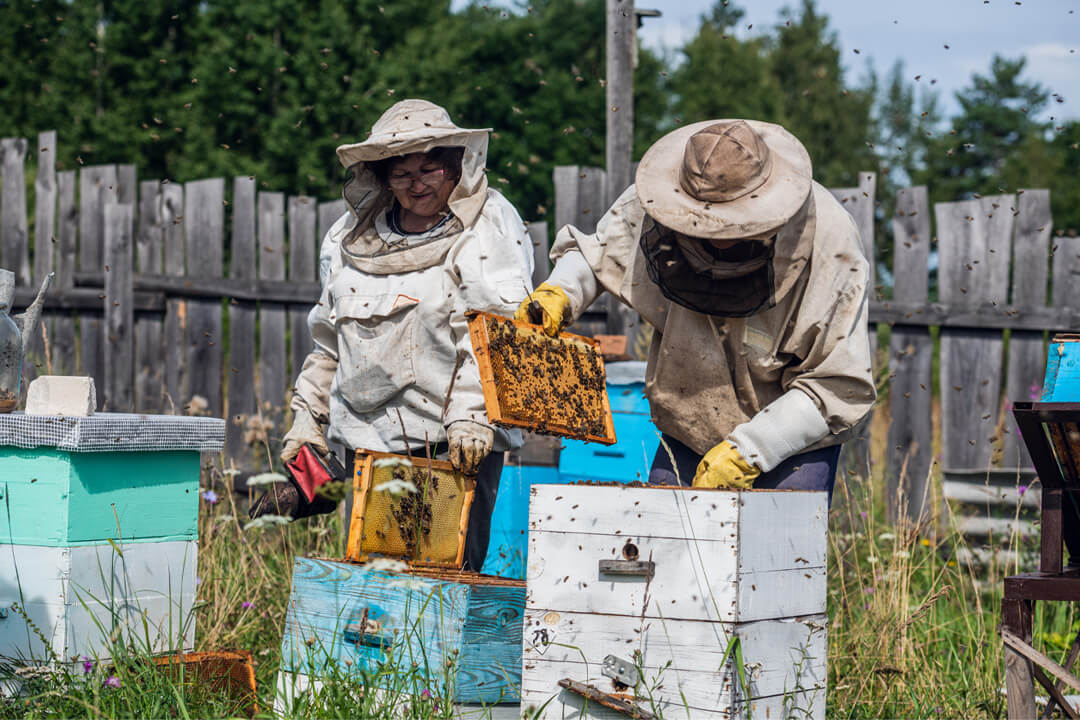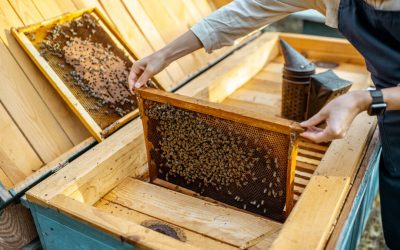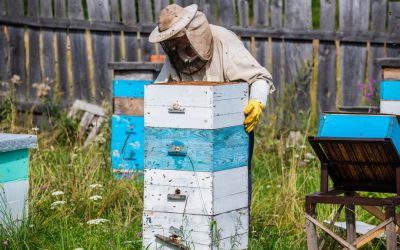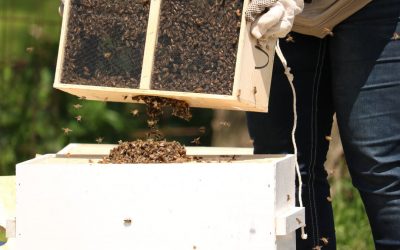What is beekeeping?
Beekeeping, also known as apiculture, is the practice of keeping bees in man-made hives for honey production, pollination, or both. Beekeepers use various methods and equipment to keep their bees healthy and productive. It can be both a hobby and a commercial business.
Beekeeping is a great community to get involved with, and much support is available for beginners. However, it is vital to know that beekeeping requires significant time and effort to succeed. If you are not prepared to do the work, it might not be a suitable activity for you.
What to consider before you start beekeeping
If you are interested in beekeeping, it is important to do your research and ensure that it is the right fit. Consider the key factors below before you start diving into the activity.
Time and effort
Beekeeping requires a significant investment of time and effort. The amount of time needed will depend on the size and type of operation, but beekeepers should expect to spend several hours each week tending to their hives. This includes inspecting the hives, checking for pests and diseases, and ensuring the bees have enough food.
If you see beekeeping as more of a hobby, it’s important to divide the free time you have among the different activities you enjoy. Beekeeping can quickly become all-consuming, so it’s important to have other hobbies and interests to maintain a balance in your life.
Costs
You need to consider the costs and investment. Starting a beekeeping operation requires a significant investment. The start-up costs for beekeeping can be high, as you will need to purchase bee hives, frames, and other equipment. You will also need to buy bees and beekeeping supplies.
The exact cost will depend on the size and operation you plan to set up. However, you can expect to spend several hundred dollars on beekeeping supplies alone. This isn’t considering the protective wear you’ll need as well. Protective gear isn’t necessarily required but is recommended, especially when starting out.
Location
Where you are going to put your initial bee hive is crucial. There are a few things you must consider:
- You will need a sunny location sheltered from the wind.
- Your bee hive should be close to a source of water.
- Finally, you will need enough space to put at least two bee hives.
If you answered yes to all of these, congratulations, you have a suitable location for beekeeping!
Protection from pests and diseases
Bees are susceptible to various pests and diseases, which can decimate a hive if not appropriately treated. Check out this reference sheet on the different parasites honey bees can come in contact with.
Beekeepers must take measures to protect their hives from these threats. This includes using pesticides, installing screens on hives, and inspecting hives regularly for signs of pests or disease. Otherwise, all the effort and costs you’d put into a bee hive could be for nothing.
Read our article How to Start Beekeeping: A Beginners Guide for more information how to successfully start a beehive.
Supply of foods for the bees
Bees need a steady supply of food to survive and thrive. This includes nectar and pollen from flowers. Beekeepers can help their bees by planting flowers that attract bees or providing sugar solutions for them to feed on. So make sure you stock up on honey before getting started with beekeeping!
Advantages of beekeeping
Despite the time and effort required, beekeeping can be a rewarding experience. It is a great way to connect with nature and learn about these incredible creatures. Honeybees alone can pollinate up to 95 kinds of fruits! With this in mind, beekeepers play a crucial role in the environment and the food supply.
Beekeepers also enjoy the fruits of their labor in honey and other bee products. So if you’re considering selling your products, you could make a good profit from beekeeping. Overall, with careful planning and preparation, beekeeping can be a rewarding experience for both novice and experienced beekeepers alike.
Disadvantages of beekeeping
There are a few other things to consider before getting into beekeeping. One is that it can be dangerous. Bee stings can cause allergic reactions in some people, and beekeepers are at risk of being stung while working with their hives. Therefore, taking precautions to avoid being stung, such as wearing protective clothing, is important.
Another thing to consider is that beekeeping requires a suitable location. You will need to have enough space for your bee hives, and the area must have good sources of pollen and nectar for the bees. If you live in an urban area, you may not have enough space or suitable resources for beekeeping.
Before getting started in beekeeping, it is important to do your research and make sure it is really the right hobby or business for you. Consider that the first year of beekeeping can be tough. It takes time to learn how to care for bees properly, and you may not see much honey production in the first year.
Is there a market for bee products?
There is a market for bee products such as honey, beeswax, and pollen. The demand for these products has been growing in recent years, driven by the popularity of natural and organic foods. Beekeepers can sell honey and other bee products directly to consumers or retailers.
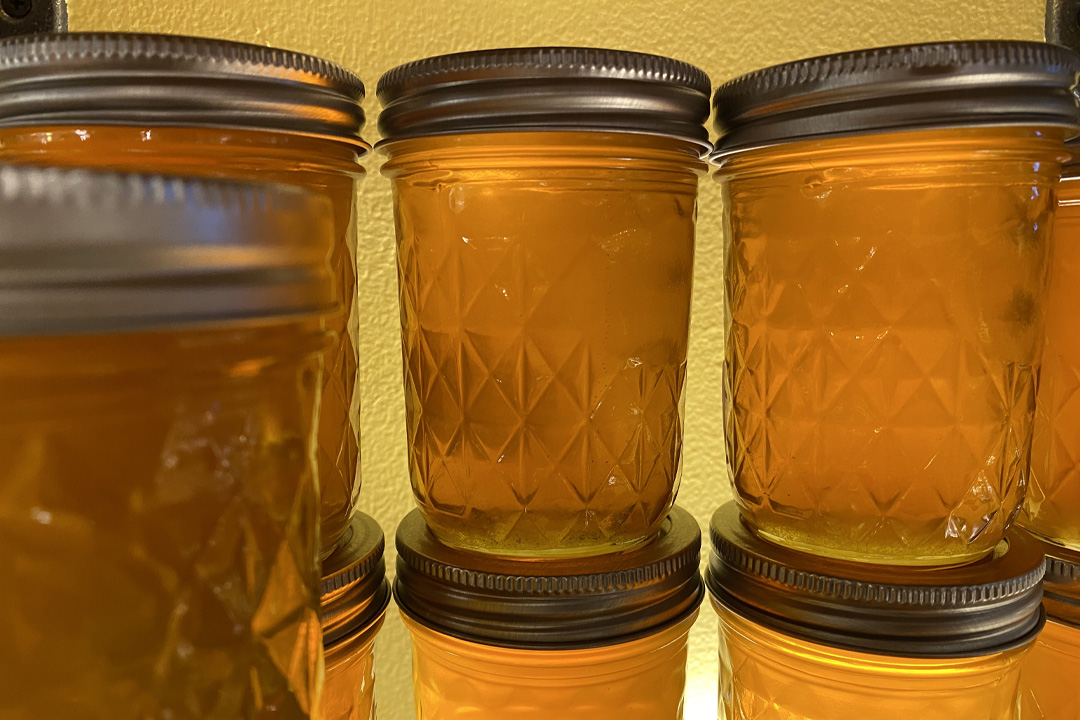
There is also a lot of demand for bee pollination services. Commercial beekeepers will often rent out their bees to farmers to help with crop pollination. This can be a lucrative business, but it requires a significant investment in bee hives and transportation.
Before getting started in beekeeping, research the market for bee products and services in your area. This will help you determine if there is a viable market for your products or services.
Summary
Beekeeping can be a rewarding experience, but it is important to do your research before getting started. Consider the time investment, cost, and risks involved. Make sure you have a suitable location for your bee hives. With careful planning and preparation, beekeeping can be a successful hobby or business.
So if you think you’re up for the challenge, go ahead and get started! We hope this article helps you in your decision-making process! Good luck!

